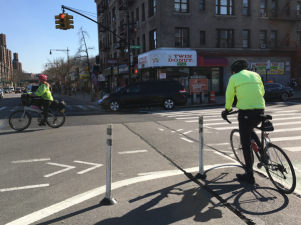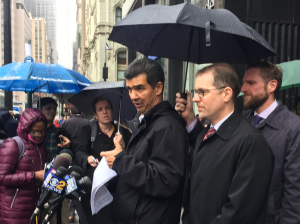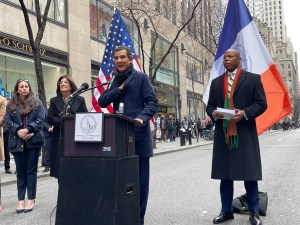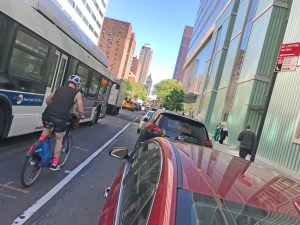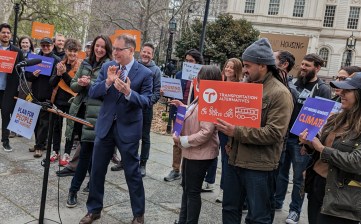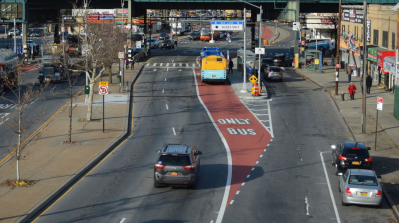NYPD on Parking Perks for Press: Do as We Say, Not as We Do
The City Council’s attempt to return parking privileges to the New York press corps faces opposition, ironically enough, from the New York City Police Department.
Intro. 779, sponsored by transportation committee chair Ydanis Rodriguez and 34 of his colleagues, would allow people with press-designated license plates from New York, New Jersey, or Connecticut to “park where parking or standing is otherwise prohibited except where standing or stopping is prohibited to all motor vehicles” without any time limit or payment, so long as the driver is “engaged in the covering of a news event or matter of public concern.”

While the bill would not provide physical parking placards for press vehicles, the effect would essentially be the same. There are supposed to be limits on the parking privileges conferred by placards, but in practice, placards are routinely abused as a blanket exemption from all parking laws.
“Let me make it clear, our members are not looking for some sort of perk. This is about allowing working journalists to more efficiently relay information to the people of New York City,” said Steve Scott of the New York Press Club. “We can’t do that if we’re circling the block looking for a place to park.”
The press was explicitly given a similar privilege until 2009, when Mayor Michael Bloomberg stripped it as part of a general cutback on placard distribution. Currently, vehicles with state-issued “New York Press” license plates may park in certain press-designated parking zones. Members of the media at today’s hearing conceded they already count on lenient traffic enforcement agents to give them a pass when they park illegally.
The agency with the most placards is NYPD, whose officers have made a laughingstock of the current system by parking their personal vehicles anywhere with impunity, with or without official placards. So it was more than a little ironic that NYPD Inspector Dennis Fulton opposed the expansion of parking perks at today’s City Council transportation committee meeting.
Fulton’s argument, nevertheless, was spot on. He said the legislation would be “impossible” to enforce. “The police department is concerned that it would be very difficult for a police officer or traffic enforcement agent in the field, after having observed a vehicle parked in a prohibited space or with an expired meter, to determine whether the vehicle is covering a legitimate ‘news event or matters of public concern,’ and is thus parked illegally,” Fulton told the committee.
He added that the law has the “potential to lead to abuses by those who seek to obtain unlimited parking privilege while on personal business.” The same could also be said, of course, about the current placard system that city employees abuse every day.
The bill is conspicuously out-of-step with most of Rodriguez’s transportation policy agenda. (Much of the morning was spent touting the upcoming “Car Free Earth Day” initiative). But he defended parking as a “right” for reporters hurrying to cover breaking news.
In his opening statement, Rodriguez touted a reform proposed by Council Member Dan Garodnick, which would cut down on fraudulent parking placards by equipping official placards with barcodes that enforcement agents could verify. But he argued that his legislation was important for ensuring the press can do its job effectively. “We should not be making parking easier for people as this will further incentivize car usage,” Rodriguez said. “However, members of the press do a special job and, it can be argued, are often as important to have on the scene of an emergency as first responders, as information is key to the public.”
